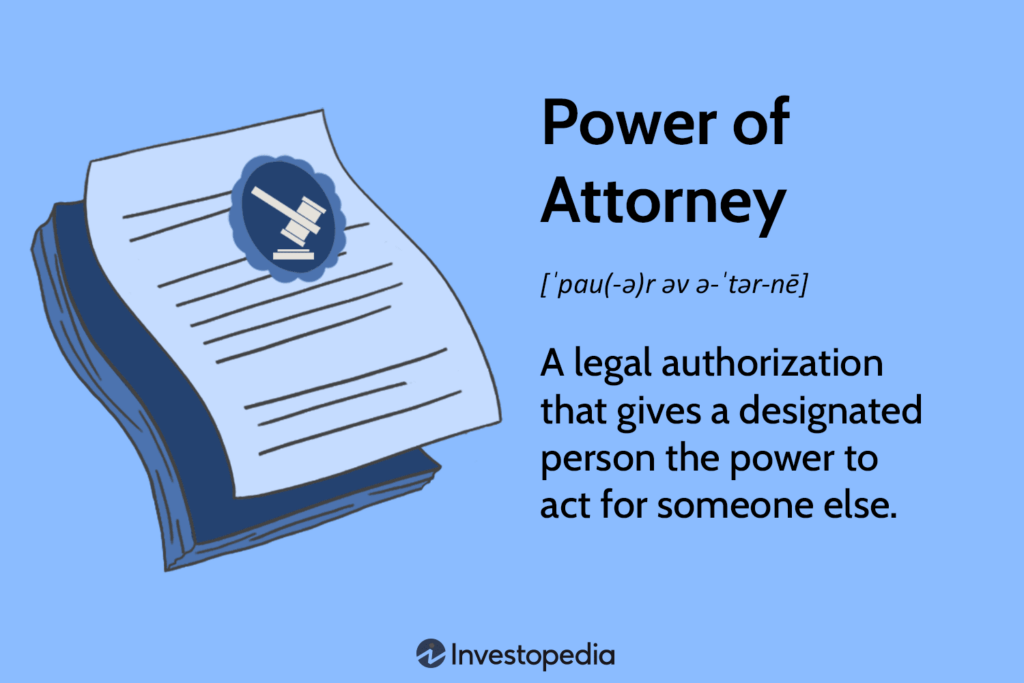Table of Contents
- What is Power of Attorney?
- How to Get Power of Attorney
- How Long Does It Take To Get Power of Attorney?
- Pros and Cons of Power of Attorney
What is Power of Attorney?
Power of Attorney (POA) is a legal document that allows one person (known as the principal) to appoint another person (known as the attorney-in-fact or agent) to act on their behalf in legal, financial, or health care matters. The principal gives the agent legal authority to make decisions and take actions on the principal’s behalf. Power of Attorney is revocable, meaning that the principal can revoke the authority of the agent at any time.
Power of Attorney can be used in many different situations. For example, a principal can authorize an agent to sign legal documents, conduct real estate transactions, access bank accounts and make investments on their behalf. Power of Attorney can also be used to authorize another person to make medical decisions for the principal if they are unable to make those decisions for themselves.
How to Get Power of Attorney
The process for getting Power of Attorney varies from state to state, but typically requires the principal to complete a formal document and have it notarized. The document may also need to be signed or witnessed by at least two people, depending on the state.
The principal should also be sure to include specific instructions in the document, such as the type of decisions the agent can make and any limitations on their authority. For example, the principal may limit the agent’s authority to certain types of decisions or limit their authority to a certain period of time.
How Long Does It Take To Get Power of Attorney?
The time it takes to get Power of Attorney depends on several factors, such as the state laws and the complexity of the document. In some cases, the process can be completed in just a few days or weeks. In other cases, it may take several months or even longer.
In most cases, the principal must sign the document in front of a notary public or other authorized person. If a lawyer is involved in the process, it may take longer for the document to be completed.
The principal should also be aware that certain types of Power of Attorney may require additional steps, such as getting approval from a court. This can add time to the process.
Pros and Cons of Power of Attorney
Getting Power of Attorney can be a valuable tool for protecting one’s assets and making sure that important decisions are made in their best interests. However, it can also be misused and abused, so the principal should be aware of the pros and cons of granting Power of Attorney.
The main benefit of Power of Attorney is that it gives the principal peace of mind that their affairs will be taken care of if they are unable to do so themselves. It can also save the principal time and money, as they do not need to go through the process of probating their estate.
The downside of Power of Attorney is that it can be abused by the agent. The principal should make sure that they trust the agent and have a clear understanding of the agent’s duties and responsibilities. It is also important to review the document periodically to ensure that it is up-to-date.
In summary, getting Power of Attorney can be a valuable tool for protecting one’s assets and making sure that important decisions are made in their best interests. However, it is important to understand the risks and take steps to protect oneself.


A Power of Attorney is an important legal document to understand and establish.